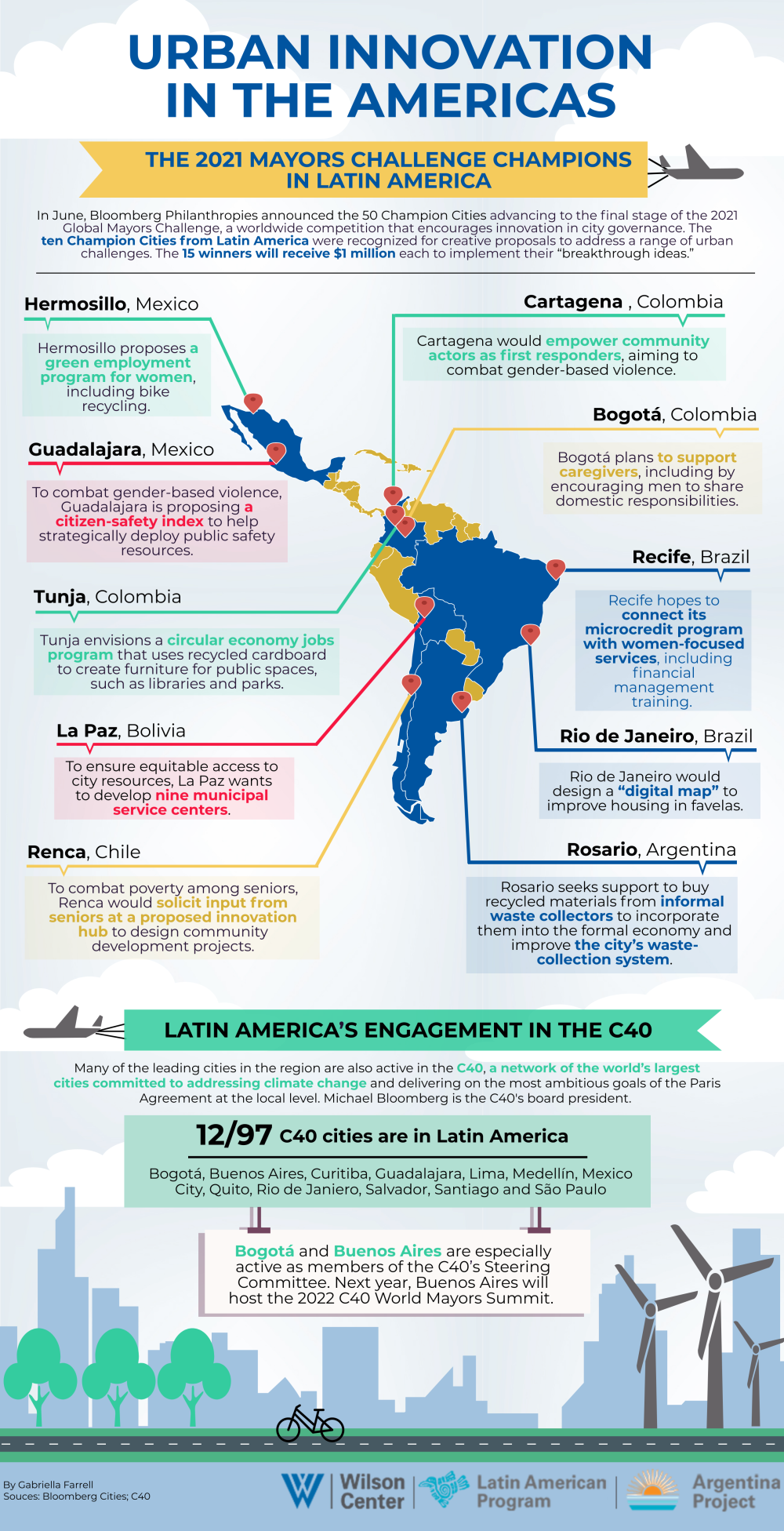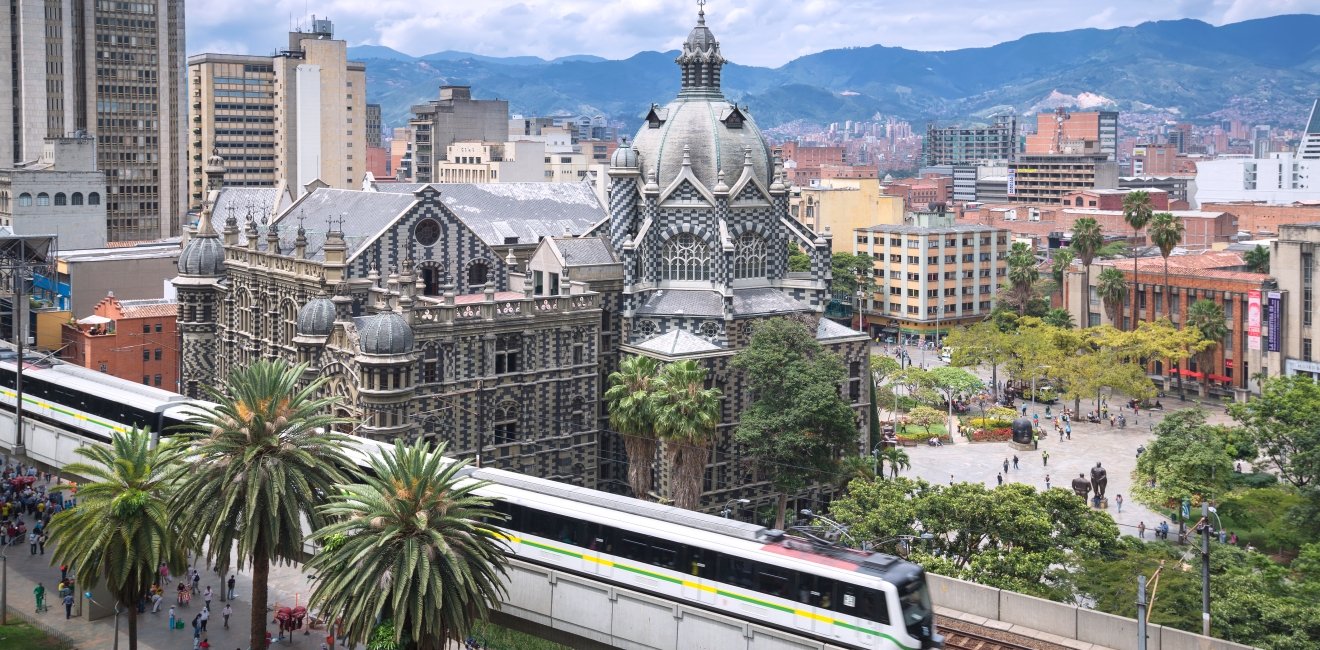
A blog of the Latin America Program
Latin American cities have been especially vulnerable to the pandemic due to overcrowding, poverty and weak health infrastructure. Fortunately, many mayors have risen to the occasion, sometimes in the absence of adequate national leadership. The pandemic response by city leaders extends beyond managing COVID-19, and includes ambitious attempts to reimagine post-pandemic life in some of the region’s largest metropolises.

In particular, a handful of Latin American governors and mayors are at the forefront of the region’s response to climate change. Many are active in the C40, a network of the world’s largest cities that promotes climate action. The group’s next summit, in 2022, will take place in Buenos Aires, hosted by Mayor Horacio Rodríguez Larreta. In Brazil, local leaders are filling a vacuum on environmental issues left by an indifferent president. In support of the 2021 UN Climate Change Conference (COP26), 12 cities and four states in Brazil committed to the “Race to Zero” initiative to sharply reduce emissions, and several others plan to join.
Latin America’s climate response requires the presidents of the region’s biggest economies, Brazil and Mexico, to step up, as well as continued action by the region’s climate leaders, such as the presidents of Argentina, Chile and Colombia. But mayors and governors are poised to make important contributions, given the high level of urbanization. Eighty percent of Latin Americans live in cities, the highest rate in the world. As Latin America slowly recovers from the pandemic, city leaders will be on the frontlines of critical reforms to improve housing, sanitation and transportation, and to lead the charge on climate change.
Author


Latin America Program
The Wilson Center’s prestigious Latin America Program provides non-partisan expertise to a broad community of decision makers in the United States and Latin America on critical policy issues facing the Hemisphere. The Program provides insightful and actionable research for policymakers, private sector leaders, journalists, and public intellectuals in the United States and Latin America. To bridge the gap between scholarship and policy action, it fosters new inquiry, sponsors high-level public and private meetings among multiple stakeholders, and explores policy options to improve outcomes for citizens throughout the Americas. Drawing on the Wilson Center’s strength as the nation’s key non-partisan policy forum, the Program serves as a trusted source of analysis and a vital point of contact between the worlds of scholarship and action. Read more


Argentina Project
The Argentina Project is the premier institution for policy-relevant research on politics and economics in Argentina. Read more


Brazil Institute
The Brazil Institute—the only country-specific policy institution focused on Brazil in Washington—aims to deepen understanding of Brazil’s complex landscape and strengthen relations between Brazilian and US institutions across all sectors. Read more


Mexico Institute
The Mexico Institute seeks to improve understanding, communication, and cooperation between Mexico and the United States by promoting original research, encouraging public discussion, and proposing policy options for enhancing the bilateral relationship. A binational Advisory Board, chaired by Luis Téllez and Earl Anthony Wayne, oversees the work of the Mexico Institute. Read more

Explore More in Weekly Asado
Browse Weekly Asado
Dengue Haunts South America’s Summers

Lessons from Costa Rica’s Economic Transformation

Women and Latin America’s Digital Revolution

